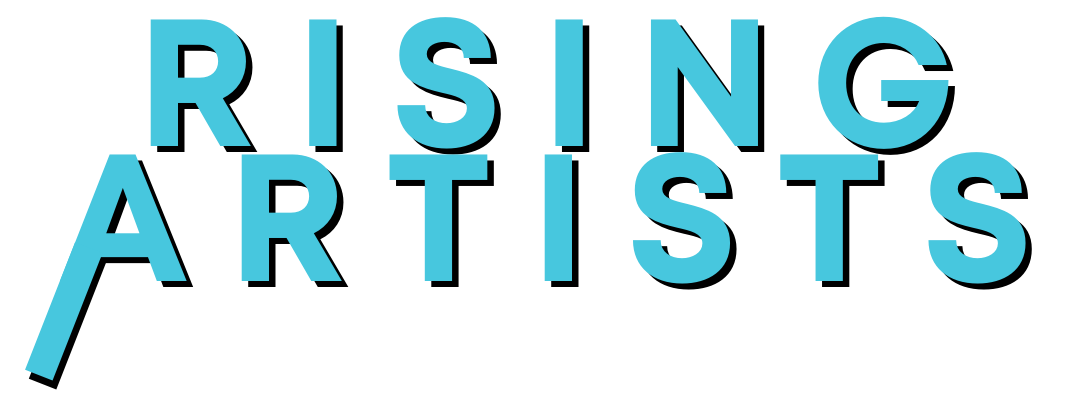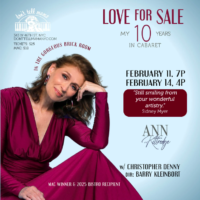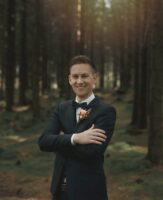In a time of need, ‘A Hometown Odyssey (The Story Continues)’ can be lifesaving. As its name suggests, ‘A Hometown Odyssey’ digs into the past and rediscovers aspects of the story that have been waiting to be heard. Weaving cinematic arrangements with personal but powerful lyricism, Livingston delivers the extended version that expands the scale of the original album.
Livingston describes music as an escape, but he does a lot more than create a space for people to disappear into through his music. His tracks serve as soundtracks for the different realities that people are facing and act as vessels to channel complex emotions and often tangled situations. Peeling off layers and layers of distractions, noises and everything that isn’t what the heart truly desires, his music also shows a way through and empowers listeners. For Livingston, music making is about creating worlds where people can be “a stronger version” of themselves. Having played more than 70 live shows, he has developed a deep connection with his audience.
Born in Denton, Texas, Livingston shares a similar relationship with music. He spends his youth crafting worlds and creating music as a way to escape and deal with anxiety. In the process, he discovers the moments of magic that are buried in layers of feelings. “Nightlight” is an “innocent reminder” of youth and passion — what it’s like to “discover music for the first time” along with all the things that were going on in life. The story isn’t as simple as capturing one moment, but to place it in the context of the world and a version of self. “People have really complex inner stories that they are looking for some sort of clarity and hope and guidance to help them get through,” he said.
Most artists aren’t as invested in B-sides as much as a brand new album, but Livingston decided to push for ‘The Story Continues’ because he still felt attached to the version of himself who made the ‘A Hometown Odyssey.’ There are still stories to tell, worlds to expand and share, and emotions to tap into. But at the core, it’s “a way to channel all the noise” and transform into something “simple and beautiful.” Music has the magic to transform traumatic and negative experiences into a work of art, and that itself is inspirational. Through his music, Livingston wants to show others a way through, where they’ll find the courage and clarity they need to “put one foot in front of the other.”

Press Q&A with Livingston
Q: The extended LP continues sharing new songs in addition to the songs in “A Hometown Odyssey.” Is there any other track that comes as a close call but is not included in the album?
Livingston: There are a couple of these that I worked on a couple of years ago. One’s called “Downfall” and one’s called “DNA.” It could’ve worked on it. It’s a matter of couldn’t find the right way to twist those to make them fit and shine as much as the other ones. I’d like to think there’s a point of a song’s going to jump out of your chest 100%, not 80%. Maybe one day those’ll come out. My test for the album is, I hear it and it does everything I want it to do for my heart, and it can make it on.
Q: We’re so curious about how you decided to create a deluxe album for your debut project. Why did you decide to add these specific tracks to A Hometown Odyssey’s story?
Livingston: It’s a challenge to myself. People usually don’t care about deluxe albums. People want new albums. And usually, deluxe albums are an opportunity to throw a bunch of B sides that kind of didn’t really make the cut in the first round just to eke out more sales. And as much as I desperately want to leave this album world, I felt there was one more level I could take it just with the quality of the songs and the production to really put on display the emotions that I felt the album had to potential to get across.
Q: I love the cinematic and orchestral aspects of your music; it serves as a nice contrast from your personal form of storytelling. Has there been a particular movie or composer that has shaped your approach to music and production?
Livingston: John Powell. I actually got to sit down with John when I was sixteen. He kind of gave me this crash course on music and how to use sound to evoke emotion and to tell a story. It was just a lucky profound interaction that I had with him when I was young that just made me never want to stop using those orchestral elements in my music, and I would love to do film music one day too. Hans Zimmer is just an absolute legend. He’s a genius. I would love to do a Bond song with him down the line. It would be like a career milestone for me.
Q: Your music often blends personal storytelling with pop influences. How do you balance vulnerability with creating songs that resonate widely?
Livingston: I think there is a balance, sometimes the desire to tell a story and not get in the way of it and take emotions, whether it’s something I was dealing with in my childhood or something I’m going through now that I want to process on paper, and there’s desire to use certain sounds and to make a world with the music and to fundle the idea into something that’s fun to listen to — that has melodies that are interesting and production elements that remind of what I grew up on. I think it’s a matter of having a lot of respect for an idea when it gets delivered — what am I trying to say here, and what can I do to serve the emotion behind the song. If it wants to come into existence, it’s going to come into existence, but what can I do with making this full song with production and vocals that just make it a full world and an experience.
Q: You’ve described music as an escape from anxiety. How has songwriting helped you navigate your emotions, and what impact do you hope it has on listeners?
Livingston: Songwriting is kind of this magic that can take all of these emotions and thoughts that are very difficult to be put into words and then very clearly delt it into one message and one being. Poets can do this. Painters can do this. Artists can do this. You look at something that you just made, it can be very simple, but you can look at it and say, “Wow, that really said a lot with that that I didn’t realize I needed to say.” It’s an escape. It’s a way to channel all the noise that everything on its own can be chaotic, but you end up with something kinda simple and beautiful.
Q: In this new era of Livingston, how do you want to evolve and present yourself as an artist? Do you feel that A Hometown Odyssey will be a defining moment in that journey?
Livingston: I feel like when you start to tour a lot as an artist, you start to discover what your music is for people. After playing 70 shows, I have a very clear idea of why people actually show up. People have really complex inner stories that they are looking for some sort of clarity and hope and guidance to help them get through. That’s what it was like for me when I was a child. All that I want to be is for everyone who is trying to find a way to put one foot in front of the other. In their story, I just create a soundtrack for them and a place where they feel very powerful and very in control of their destiny. Music can do that. It can make you feel like a stronger version of yourself.
CLICK HERE TO LEARN MORE ABOUT A HOMETOWN ODYSSEY (THE STORY CONTINUES)
STREAM A HOMETOWN ODYSSEY (THE STORY CONTINUES)
FOLLOW LIVINGSTON













